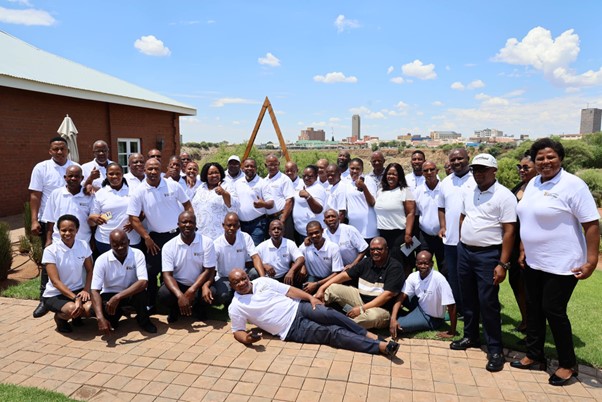
The National School of Government (NSG), in collaboration with the National Department of Traditional Affairs, hosted the first phase of a transformative five-day training program for traditional leaders from the Northern Cape, held from January 27th to 31st at the Protea Hotel in Kimberley.
This training initiative stems from President Cyril Ramaphosa’s address during the National House of Traditional and Khoisan Leadership Opening at the National Council of Provinces (NCOP). In his speech, the President emphasized the vital role of training traditional leaders as change agents within their communities. He underscored the significance of capacity-building programs in equipping leaders to enhance their roles and responsibilities, thereby contributing to sustainable development in South Africa’s rural areas.
By empowering traditional leaders with the necessary knowledge and skills, the training aims to promote sustainable job creation and encourage the active participation of rural citizens in economic development. The participants were encouraged to adopt a forward-thinking leadership approach that fosters economic growth and development within their communities.
During the sessions, traditional leaders engaged in dynamic discussions about the potential minerals, resources, and tourist attractions present in their local areas. They also explored various community development projects, reflecting on how such initiatives could benefit local populations. A key challenge identified by the leaders was the lack of resources and machinery, which hampers their ability to fully harness the economic potential of these resources or effectively promote tourism.
A significant portion of the training focused on forging strategic partnerships between traditional communities and both private and public entities to facilitate development. Mr. Lucas Raphela of NSG led a session on how such partnerships can be structured, emphasizing the importance of legislations that protect traditional communities from exploitation while ensuring mutual benefits for all involved parties.
The training also encouraged participants to engage with the Constitution, policies, and legislation that guide their leadership responsibilities. Emphasis was placed on the role of traditional leaders as active agents for change—leaders must not only understand their objectives but also effectively work towards achieving them.
Dr. Izimangaliso Malatjie, also from the National School of Government, urged traditional leaders to continually assess their leadership styles and to share knowledge both within their leadership circles and with the communities they serve.
The second phase of the training is scheduled for March, during which the leaders will reflect on the knowledge and skills acquired in the first phase. They will also provide progress reports on the projects they have initiated or plan to develop, ensuring that their communities continue to benefit from the empowerment initiatives fostered through this program.

